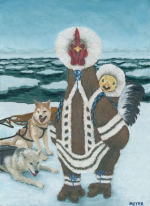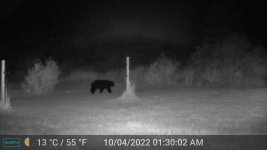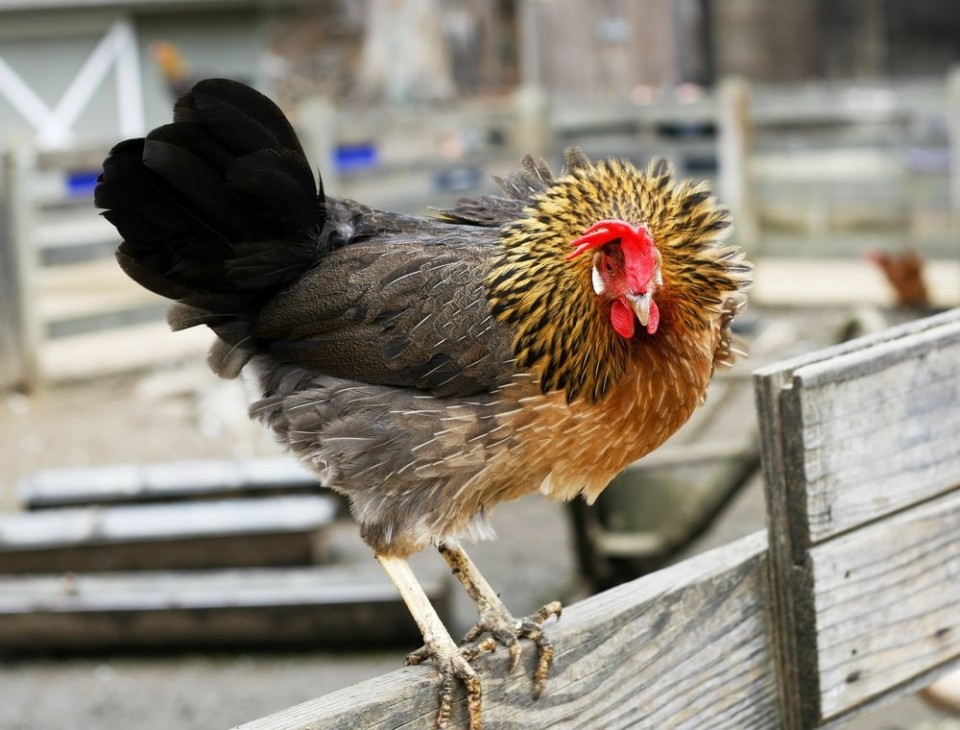BadMedicine
Would *I* Lie???
A coworker gave us a little icelandic chicken that she thought was a roo. Has 1" spurs which are pretty long because she is only a 1/3 sized chicken with very flat laying feathers and a slim tall build, like a road runner. She started laying eggs at about 6 months and is a fast little sucker! she easily pops in and out of the 4" holes in the wire fence so even though she lives with the other chickens and ducks she free ranges most of the time and until recently was sleeping on a deck rail outside of the hutch. I have watched her forage and I am sure she 100% feeds herself- or is capable of it anyways. History in to the breed is pretty fascinating- an isolated landrace in Iceland for 1000+ years, from about the 900's... This one by weight is about 1/3 the size of normal chickens but gives eggs about 2/3's the size of normal... which is a pretty decent/normal sized egg. My farm eggs average larger than store bought.
I want more of these chickens! Feed themselves, evade predators and good layers! Also says they are good broody hens and good mothering instincts- basically farmstead chickens!
They are considered rare and I found 6 eggs for $50 online - yikes! But there are conservation groups and FB that I'm sure you could source a few from.
Anyone have experience with this breed or currently raising them?
Anyone know of any VERY GOOD at foraging/ evading predators chickens? That would be good for free ranging in several acres? I'm thinking about raising some hatchlings at the camp property and mostly just having some places they can escape in to and get food and water, but mostly free range on bugs and the like.
Any other exceptional breeds for this? I know guinnea fowl are great for bugs, but aren't great for cold or not wondering away. Looking for some real self-sufficient chickens that I can "STUN"(Sheer, Total, Utter Neglect) grow in to a respectable foraging flock!
TIA!
I want more of these chickens! Feed themselves, evade predators and good layers! Also says they are good broody hens and good mothering instincts- basically farmstead chickens!
They are considered rare and I found 6 eggs for $50 online - yikes! But there are conservation groups and FB that I'm sure you could source a few from.
Anyone have experience with this breed or currently raising them?
Anyone know of any VERY GOOD at foraging/ evading predators chickens? That would be good for free ranging in several acres? I'm thinking about raising some hatchlings at the camp property and mostly just having some places they can escape in to and get food and water, but mostly free range on bugs and the like.
Any other exceptional breeds for this? I know guinnea fowl are great for bugs, but aren't great for cold or not wondering away. Looking for some real self-sufficient chickens that I can "STUN"(Sheer, Total, Utter Neglect) grow in to a respectable foraging flock!
TIA!







